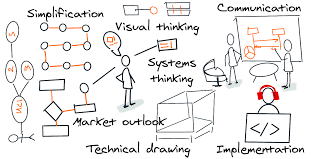Feeling overwhelmed with endless topics and uncertain where to start? You’re not alone. Software Architect interview preparation can be challenging, but a clear, structured roadmap can help you tackle those pain points head-on and boost your confidence. Here’s an engaging guide to help you navigate your journey—from day one to interview day.
Overcoming Common Interview Prep Pain Points
- Topic Overload: With countless subjects like system design, design patterns, scalability, and behavioral questions, it’s easy to feel lost.
- Lack of Structured Guidance: Without a clear plan, you might spend too much time on one area while neglecting another.
- Time Management: Balancing preparation with your daily routine can be stressful.
- Insufficient Real-World Practice: Simulating real-world architecture scenarios is challenging without the right tools.
- Feedback Gaps: Limited feedback may slow your progress, and imposter syndrome can undermine your confidence.
Your 4-Week Preparation Roadmap
A dedicated, week-by-week plan can turn chaos into clarity. Here’s a suggested 4-week timeline that covers all the essential areas for Software Architect interviews.
Week 1: Build Your Foundation
Focus: Core Software Design Principles & Architectural Fundamentals
Daily Goals:
- Day 1-2: Review core software design principles, including SOLID principles, design patterns, and architectural styles (e.g., layered, microservices, event-driven).
- Day 3-4: Brush up on system design fundamentals, focusing on scalability, reliability, and performance considerations.
- Day 5: Study key technologies and frameworks relevant to modern software architecture.
- Day 6: Engage in hands-on exercises or whiteboard sessions to practice designing simple systems.
- Day 7: Reflect on your learnings and use our Interview Question Generator for foundational practice questions.
Tip: Lay a strong foundation by combining theoretical studies with practical design exercises.
Week 2: Dive into Advanced Architectural Concepts
Focus: Deep-Dive into Design Patterns & Scalability
Daily Goals:
- Day 1-2: Study advanced design patterns (e.g., CQRS, Domain-Driven Design, Service-Oriented Architecture) and understand their trade-offs.
- Day 3: Explore strategies for designing scalable and resilient systems, including load balancing, caching, and distributed data management.
- Day 4: Work on real-world case studies to analyze architectural decisions in successful systems.
- Day 5: Engage in coding challenges or whiteboard exercises focused on designing complex systems.
- Day 6: Research emerging trends in architecture, such as serverless and cloud-native designs.
- Day 7: Reflect on your progress and simulate architecture-focused interview questions using our Interview Question Generator.
Tip: Balance deep technical research with practical application to solidify advanced concepts.
Week 3: Master System Integration & Communication
Focus: Integration Strategies, API Design, & Interoperability
Daily Goals:
- Day 1: Study methods for integrating disparate systems, including API design and data exchange formats (REST, GraphQL, gRPC).
- Day 2: Learn about middleware, message brokers, and event streaming platforms for effective system communication.
- Day 3: Explore the role of security in system integration—study authentication, authorization, and secure API practices.
- Day 4-5: Practice designing end-to-end architectures that integrate multiple services and platforms through whiteboard sessions.
- Day 6: Work on a mini-project that simulates building an integrated, scalable system.
- Day 7: Summarize your learnings and prepare a mock presentation on your integration strategy.
Tip: Use whiteboard practice to clearly articulate how different components interact within your architecture.
Week 4: Polish Your Behavioral & Soft Skills
Focus: Behavioral Interviews, Portfolio Review, & Mock Sessions
Daily Goals:
- Day 1: Prepare your portfolio by reviewing past projects, architectural designs, or case studies. Be ready to discuss your design decisions and the outcomes.
- Day 2: Outline key experiences using the STAR method (Situation, Task, Action, Result) tailored to your architecture challenges.
- Day 3: Record yourself answering common behavioral and technical questions to identify improvement areas.
- Day 4: Conduct mock interviews focusing on both technical scenarios and soft skills.
- Day 5: Seek feedback from peers or mentors and refine your explanations.
- Day 6: Practice articulating your problem-solving process, your design rationale, and how you handle trade-offs in architectural decisions.
- Day 7: Reflect on your progress, relax, and boost your confidence with final rounds of mock sessions using our Interview Answer Generator.
Tip: Effective communication of your technical expertise and interpersonal skills is crucial to succeed in your interview.
Bringing It All Together
By following this roadmap, you’re not only addressing the common pain points of interview preparation but also ensuring that every aspect of your Software Architect interview is covered. Remember:
- Break It Down: Tackle one component at a time—don’t try to master everything in one go.
- Stay Consistent: Even short, focused sessions add up over time.
- Use the Right Tools: Leverage interactive tools like our Interview Question and Interview Answer Generators to simulate real interview conditions and get valuable feedback.
- Believe in Yourself: Everyone faces challenges; your dedication and structured plan will set you apart.
Start your journey today, and turn every challenge into an opportunity for growth. With clear steps and the right mindset, your dream role as a Software Architect is well within reach!
Happy prepping, and here’s to your success!




